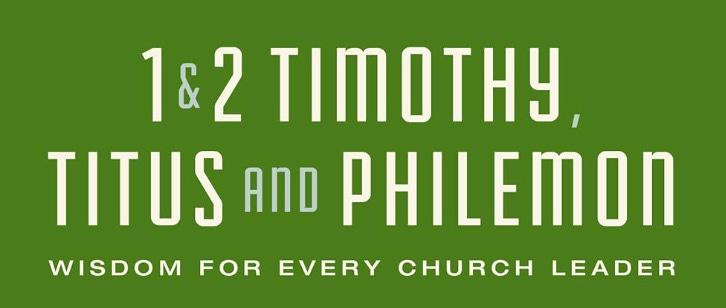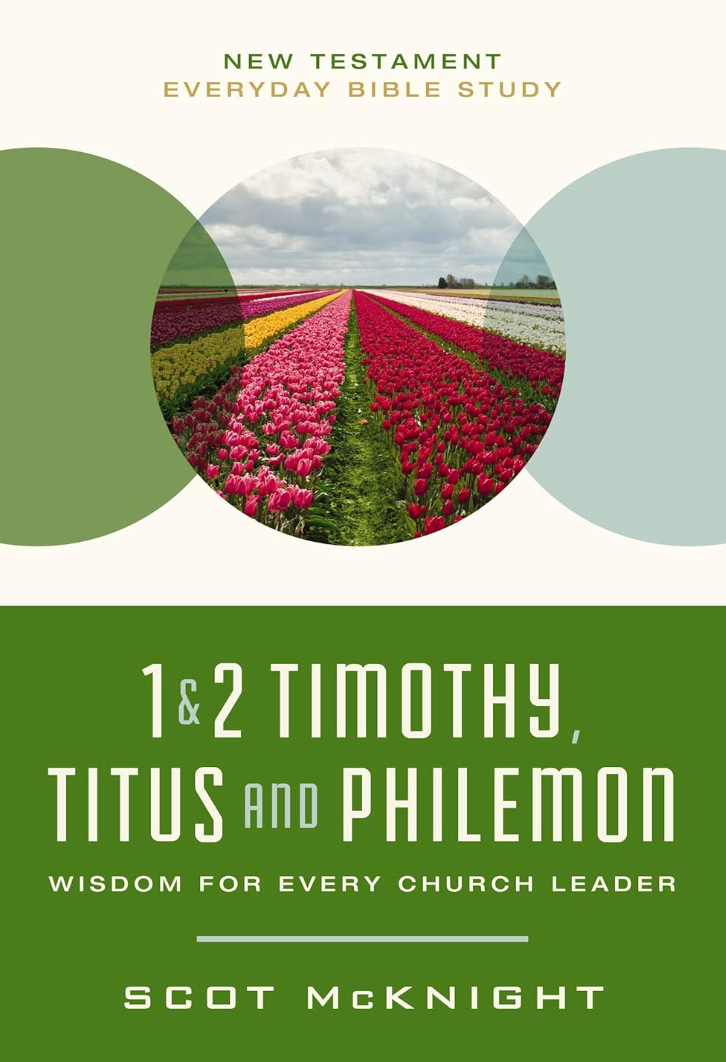From my Everyday Bible Study on the Pastorals and Philemon.
Questions by Becky Castle Miller
Leaders Nurture Prayer for Politicians
1 Timothy 2:1-7
1Tim. 2:1 I urge, then, first of all, that petitions, prayers, intercession and thanksgiving be made for all people— 2 for kings and all those in authority, that we may live peaceful and quiet lives in all godliness and holiness. 3 This is good, and pleases God our Savior, 4 who wants all people to be saved and to come to a knowledge of the truth. 5 For there is one God and one mediator between God and mankind, the man Christ Jesus, 6 who gave himself as a ransom for all people. This has now been witnessed to at the proper time. 7 And for this purpose I was appointed a herald and an apostle—I am telling the truth, I am not lying—and a true and faithful teacher of the Gentiles.
1Tim. 2:8 Therefore I want the men everywhere to pray, lifting up holy hands without anger or disputing. 9 I also want the women to dress modestly, with decency and propriety, adorning themselves, not with elaborate hairstyles or gold or pearls or expensive clothes, 10 but with good deeds, appropriate for women who profess to worship God.
At times the apostle Paul is like the speaker who clearly begins a topic, wanders a bit off topic to clarify something, and only vaguely returns to the original topic. That’s what happens today’s passage. Both verse one and eight make it clear Paul is talking about prayer. Both paragraphs, however, seem to create their own little sidebars (vv. 4-7, v. 9-10). So, if you had a bit of trouble following Paul, he wanted you instead to follow him where he was going.
When Paul says “first of all” he means that socially respectable Christian practice (see below) requires praying for one’s community and not just for one’s self, one’s family, or one’s house church. The kind of prayer he has in mind spans the prayer life: petitionary prayer, generic prayers (synagogues in the diaspora were called “houses of prayer”), intercessory prayers, and prayers of thanksgiving that express gratitude to God.
Leaders nurture prayer for all people
Paul urged prayer for “all people” – and in our church we publicly pray every Sunday for the church worldwide, for the mission of the church to spread the gospel, for the peace in the world, for the poor and persecuted and sick and those who suffer, for our own congregation, for our enemies, and for ourselves. Whatever the Lord brings to mind, pray for that.
Leaders nurture prayer for politicians
The earliest Christians grew in both perception and relationship to the political authorities in the Roman empire, some of whom were brutal to them. Yet, the apostle Paul expects local leaders to lead in praying “for kings [or emperors] and all those in authority,” and the reason for the prayer was to promote “godliness and holiness” and to protect the church from social foolishness. The word “godliness” has recently taken on fresh insights through the research of Christopher Hoklotubbe, who has shown in his academic study that the term eusebeia is the Greek equivalent of the Latin pietas. Not only that, but those terms referred to the public practice of one’s religion in a manner that was socially respectable (Hoklotubbe, Civilized Piety; McKnight, “Eusebeia.”) Put directly, we will pray for the political leaders, and we will also live the kind of life that is socially respectable. That is, instead of anarchy and rebellion. This was the most common strategy of Christians in the early church. However, as the Book of Revelation shows, at times they had to resist as dissidents of the empire because non-resistance was complicity in sin. Socially respectable public practice of one’s faith, however, did not mean some kind of bland acceptance of the religions of the empire. No, there was a “sly civility” at work in the Christians’ public behaviors.
SLY CIVILITY
Christopher Hoklotubbe:
The author of the Pastorals attempts to portray Christians as civilized and exemplary participants within the Roman social order who nevertheless maintained their theological distinctiveness (which, of course, could be considered “countercultural” in its own respect), representing a singular strategic response of what might be considered a “sly civility” along a spectrum of early Christian attempts to negotiate their imperial situation (Civilized Piety, 216).
One of the traditions of the American church has been the development of prayers for the President and for the people, and I include now two such prayers from The Book of Common Prayer. Prayers like these are found in many church prayerbooks.
O Lord our Governor, whose glory is in all the world: We
commend this nation to thy merciful care, that, being guided
by thy Providence, we may dwell secure in thy peace. Grant
to the President of the United States, the Governor of this
State (or Commonwealth), and to all in authority, wisdom
and strength to know and to do thy will. Fill them with the
love of truth and righteousness, and make them ever mindful
of their calling to serve this people in thy fear; through Jesus
Christ our Lord, who liveth and reigneth with thee and the
Holy Spirit, one God, world without end. Amen (The Book of Common Prayer, 820).
Lord God Almighty, you have made all the peoples of the
earth for your glory, to serve you in freedom and in peace:
Give to the people of our country a zeal for justice and the
strength of forbearance, that we may use our liberty in
accordance with your gracious will; through Jesus Christ our
Lord, who lives and reigns with you and the Holy Spirit, one
God, for ever and ever. Amen (The Book of Common Prayer, 258).
I believe every US American church should publicly pray every Sunday for the President and for the people. I also know for many people any current president could raise one’s blood pressure. If we practice this every Sunday forever-and-a-day we will learn to pray even, and especially, for the presidents we don’t like.
Why? Because it is “good, and pleases God our Savior” (2:3). Full stop. But Paul goes on: The God who is pleased with our various prayers for politicians “wants all people to be saved and to come to a knowledge of the truth” (2:4). This is where Paul creates his own little sidebar. That our God wants all to embrace Jesus in faith and allegiance is because, contrary to the idols and temples and shrines all around them, “there is one God and one mediator,” Jesus, and he “gave himself a ransom for all people” (2:5-6). Continuing his sidebar with a sidebar in a sidebar, Paul notes again the sacred trust given to him to be an agent of the gospel to gentiles (2:7).
Leaders nurture prayer behaviors
Now back to leaders praying when they assemble. In public prayers Paul asks one thing for men and one thing for women. Paul wants the men to pray, which is expressed in the postures in which they prayed, “lifting up holy hands,” in a manner that is socially respectable: “without anger or disputing” (2:8). I find that one interesting, and every time I read it, I wonder if the men of that time had anger issues. Yes, just look at Romans 12:19 and 14:1, as well as at James 1:19-21 and 4:1-2. Some things never change.
Paul, it is usually assumed, wants the women to avoid the appearance of opulence and thus also of shaming the poor by showing off their high-status clothing. So he exhorts them to dress “modestly,” because it expresses Christian character but also social equality for all believers. They are to be known for “good deeds” far more than their fine clothing (2:9-10).
This traditional teaching about female modesty deserves a more careful explanation. I quote with some light editing from my forthcoming commentary on the Pastoral Epistles, the following words: One is led by the concentration of words about respect to the conclusion that the assemblies were getting tied into flouting wealth among Christians in Ephesus. However, the language about so-called modest clothing urges the women to dress in a manner communicating civilized piety as Christians understood such piety. The word “modestly” concerns their “worldly fashionable outfits,” or one could translate this as “I want them to face the world in worldly clothing” – but not in the sense of sinful worldliness. (The word “world” can mean “fashionable” or “decorous.”) Notice now what is being said: Paul offers instruction for the Christian women to keep status and social location in mind in how they dress, but also with “decency and propriety.” These two terms also have a woman’s and the church’s social location in mind. Not below it, not above it. Behind the word “decency” is aidous while behind “propriety” is sōphrosynēs, terms that could be rendered “with dignity and class” or “with respect,” while the second term could be understood as “with prudence” or “good sense” and even “with public self-control” (cf. 2:15).
From an inscription written by a man about his wife at the turn of the 1st Century, the husband of his now-deceased wife after forty-one years of marriage refers to her in these terms: “As for your domestic virtues, loyalty (to our marriage), obedience, courteousness, easy good-nature, your assiduous wool-working, reverence (for the gods) without superstition, attire not designed for attracting attention, modest refinement — what need have I to make mention of these?”
G.H.R. Horsley, New Documents Illustrating Early Christianity 3 (Grand Rapids: Eerdmans, 1983), 34.
All this to say that we have, on the basis of one kind of reading of these instructions for women, almost pushed women into the world of the Amish and Old Order Mennonites (no disrespect to them) and missed the very point Paul is making. This is not an injunction for women to dress backwards nor does it instruct them into some form of asceticism. Rather, Paul urges the women to wear socially respectable clothing. Both culture and social location determine what clothing to wear.
Leaders lead the church by guiding for whom it prays and how the people praying conduct themselves. Let me give a piece of advice about the conduct called clothing: be careful what you say. I’m of an age that I cannot for the life of me understand why some men wear stocking caps during the whole service. When I grew up men wore to church dress hats (with feathered decorations in the band), and we put them on the coat rack. If I’d have worn one during the service my mother or father, probably mother, would have taken me outside the sanctuary and told me to take it off. If I wore such a hat today, I’d be out of step with what is socially respectable. And no one would care either. I’d mostly leave the topic of clothing right there.
Questions for Reflection and Application
1. What instruction for prayer does Paul give in this passage?
2. How does praying for political leaders impact local churches?
3. In what ways does this passage convey Paul’s concern that the churches be socially respectable?
4. Does your church include public prayer in your gatherings? What do you pray for together?
5. What have you been taught about modest dress in church? How does this explanation impact your understanding of Paul’s guidance?
Christopher T. Hoklotubbe, Civilized Piety: The Rhetoric of Pietas in the Pastoral Epistles and the Roman Empire. Waco: Baylor University Press, 2017.
Scot McKnight, “Eusebeia as Social Respectability: The Public Life of the Christian Pastor.” In Rhetoric, History, and Theology: Interpreting the New Testament, ed. by Todd D. Still and Jason A. Meyers (Lanham, Md.: Lexington/Fortress Academic, 2021), 157–74.






Thank you . 🙏🏼